|
People ask me what professors do between classes every day. Well . . . Yesterday I had the privilege of spending an hour with Lisa Michaels, a fellow guest, and Rick Lee James, host of the podcast called Voices in My Head. We talked about the Eucharist from a Wesleyan perspective, Lisa's experience of defining grace, raising children theologically (her daughter sounds brilliant!), and hosting church in the intimate setting of home (getting a little organic church into the conversation!). I talked a bit (probably too long) about how Eucharistic thinking took root in my life, got filtered through the complexity of life in other places with different voices of authority, and what Eucharist looks like in the church I get to pastor.
Enjoy.
0 Comments
There is some fluidity between what someone thinks a church is and what expresses God's presence in our world as His gathered people which sometimes meets in homes, coffee shops, in the break room of a business, under a tree, or in a soup kitchen. The emphasis is always threefold--worship, discipleship, and mission--the presence of these functions with a designated leader to guide the work make this gathering a recognizable church. Here is our definition of organic church includes the previous definition as well as: An organic church is the natural, relational expression of God’s mission of multiplying His people in the local culture. What do you think?
We are re-tooling our website to welcome and connect organic leaders and churches across the United States and Canada: www.organicnazarene.org Soon we will have information about organic church workshops and a luncheon at this summer's Nazarene General Assembly in Indianapolis. A Plain Account is an a deeply rich and accessible resource for preaching through the weekly passages of the Revised Common Lectionary. Here is the link for my contribution in Epiphany 7A (text below):
In the center of the Jewish Torah is a book of worship called Leviticus. Instruction for the worship of Yahweh is found alongside guidance for a new way of living. The ritual of seeking God’s face becomes fully apparent in the ethos of how one lives together as God’s people. In this esoteric book of worship practices, which seem so foreign to modern sensitivities, there is found what has been called the Holiness Code (chaps. 17-26), as strange as it is difficult. Nevertheless, it depicts a way for God’s people to be sure they are as ready as their priests for worship. Leviticus 19 picks up the theme of neighborly love as the responsible posture of faithful worship and living. By the way, this is the only place Leviticus is found in the three year cycle of the Revised Common Lectionary. In the holiness tradition, Leviticus 19:2 is a favorite proof-text: “Be holy because, I the LORD your God, am holy.” It is astounding to think this ancient code gives weight to the teaching of a relatively new historical movement that teaches human lives might also be sanctified, set apart, made holy. It is mostly a supporting text, however, extracted from its canonical context. Usually it is tied to Matthew 5:48, “Be perfect, therefore, as your heavenly Father is perfect" (NIV). According to early Nazarene dogmatic theologian H. Orton Wiley, this text is cited as a precursor to the New Testament command found in 1 Peter 1:16 as an example of biblical holiness that is “real and positive, not merely typical and ceremonial.” [Christian Theology, II, 444]. Wiley is making a point at the very beginning of the section on entire sanctification in his summa theologica. There is some internal re-negotiation of reality, a re-ordering of what is not yet into what very well could be, not limited to external evidentiary proof for what happens in someone’s life when God makes a human being holy, a re-imaging of the divine intention at creation. It sounds as if Wiley questions the efficacy of ritual purity in the radiant light of a renewed ethic. What if there was a complete change in one’s ethic through participating in the ritual action? (Milgrom, 222). What if the ethos can only offer entry by the means of the ritual process? This is the kind of inward spiritual change that turns one’s hands upward (in a gesture of sacrificial, and ritualistic, offering?) toward God, anastrophe (= upturning), a favorite term in First and Second Peter, translated as both conduct and conversation represented in a renewed way of living (cf 1:15, 18, 2:12, 3:1, 2, 16; 2 Peter 2:7, 3:11). The act of worship begins such a turnaround in perspective that the next move of obedience must be a step in the direction of faithfulness. It is rather clear why the ceremony of declaring Yahweh as God, that Law and Gospel are not as far apart as one might have been led to believe, and that ritual action should not be separated from faithful living. Leviticus 19 is not just a nebulous insertion of “various laws,” but rather pointed descriptions of divinely-motivated and others-oriented love of a kind that flows from faithful worship. The first part of the chapter (vv. 3-8) contains an almost identical recitation of the Decalogue (Exodus 20:1-7) in honoring one’s ethical heritage (“mother and father”) as much as ritualistic importance of sacred time (“observe my Sabbaths”) in verse 3. One’s ritual participation in the temple reaches forth into living action in daily relationships at home and elsewhere. There is also elaboration in the early part of this chapter on how to bring about community through temple worship (“fellowship offering” NIV, “offering of well-being” NRSV, “peace sacrifices” zebach shelamim [v 5]) and in leaving part of one’s harvest for the marginalized (verse 9-10: ani poor, afflicted / ger, foreign immigrant) (cf. The Book of Ruth). The actions of God’s people are tied directly to the identity (“name”) of their object of worship: “I am the LORD your God.” (vv 3, 12). The structure of the chapter shows intentional liturgical connections throughout in the refrain: “I am the LORD” (19:3, 4, 10, 12, 14, 16, 18, 25, 28, 30, 31, 32, 34, 36, 37). The emphasis for each section is: Taking care [=shamar] of the Law in worship and ethical living [vv.1-10] Loving one’s neighbor [vv.11-18] Laws of mixture [vv.19-22] Laws of planting (=orlah) [vv. 23-25] Laws of against idolatrous worship [vv. 26-31] Respect for the marginalized and easily forgotten [vv. 32-37] Neighborly love is the theme for the bulk of this week’s passage in verses 11-18. The passage includes four sections stamped by the Author of the commands: “I am the LORD” (vv. 12, 14, 16b, 18). Each section creates a composite image of a good neighbor. Verses 11-12. Honesty is the first signal of neighborliness. To steal from a “fellow citizen” [=amith] is tied together with distorting the worship of Yahweh made up of hollow words with little internal coherence and integrity [=chalal has an Aramaic origin “to hollow out” here in Hebrew as “making profane”]. Verses 13-14. Safeguarding the well-being of the other is positive framing for not exploiting those near to us [=rea neighbor]. Simply honoring the personhood of those having less material wealth than oneself is enough. The defense of the “neighbor,” “hired hand,” “blind,” and “deaf” might also be required of those seeking to live faithfully. It is as if God requires His people to be a “blessing to the nations.” (Genesis 12:1-4). Here also are echoes of Jesus’ teachings in parables and sign-acts in the Gospels. Verses 15-16. Seeking justice in an equitable society is the responsibility of everyone in the community. It might be easy to show preference for immediate family members or those from one’s nation of birth or for those of my political stripe. There is no room for partiality and favoritism in God’s Reign. Any imbalance in the systems of human government and artificial distinctions within cultures are no excuse for the faithful followers of Yahweh then, as it is with the people of God gathered as the Church now. “There is no longer Jew or Gentile, slave or free, male and female. For you are all one in Christ Jesus” (Galatians 3:28). God is judge, and reminds His people to live justly as a witness of divine character at work in creation. Verses 17-18. Openness in how one relates to others puts into place the final piece of neighborliness. Proverbs 27:5 restates these verses well: “Better is open rebuke than hidden love.” The very first mention of “church” in the Gospels emphasizes the importance of dealing openly with wrongs that need to be made right again (Matthew 18:15-22). For Jesus, the entire moral code of the faith that bears His name can be summed up by these five words: “love your neighbor as yourself” (Matthew 22:34-40, esp. 39-40). These words from Leviticus encouraging neighborliness are situated in the context of the true, unadulterated worship of Yahweh. It is evidence not only that humanity is called to live toward God but also that God comes toward us in perfect love (cf. Matthew 5:48). Here are some closing insights on the divine source of holiness through liturgy lived out and exemplified by today’s passage in Leviticus 19 from Ephraim Radner (2008, pp203, 204): “The unbounded God provides his creatures time and space in which to distinguish his gifts through obedience to his commands, thereby granting them the intimacy of his otherwise inaccessible being . . . Holiness is a calling to be with God where God is and where God goes -- and his own going, to us in our creation and redemption, is all that is holy.” Helpful Resources Cited or Otherwise: Freeman, Tzvi. “What Is a Mitzvah? The State of Being Connected.” Chabad.org. http://www.chabad.org/library/article_cdo/aid/1438516/jewish/Mitzvah.htm. Accessed February 13, 2017. Fretheim, Terence. 1996.The Penteteuch. Nashville: Abingdon Press. Gane, Roy. 2004. Leviticus, Numbers. The NIV Application Commentary. Grand Rapids: Zondervan. Milgrom, Jacob. 2000. Leviticus 17-22. The Anchor Bible Commentary. Yale University Press. Radner, Ephraim. 2008. Leviticus. Brazos Theological Commentary on the Bible. Brazos Press. Wenham, Gordon J. 1979. The book of Leviticus. New International Commentary on the Old Testament. W. B. Eerdmans. Wiley, H. Orton. 1952. Christian Theology. Volume 2. Kansas City: Beacon Hill Press. Here's a question from a friend who is a missionary. I received the email a few weeks ago. I just got around to responding today. I have taken out or altered information that would identify this person or where they serve even though I don't think there is anything critical or off-putting in the question or its asking. "I have some questions for you, just for my own information. I think it was you who said that the United States was now considered a mission field by the Church of the Nazarene. I have also heard of missionaries from [our part of the world] that are going to the U.S. to be missionaries. Why do we send missionaries from the US to other countries and vice a versa? Why don't we just keep those that are called in their own countries to do the work that a missionary from another country might do? I do not consider the [country I live in] a mission field as they have very large churches here in [the capital city] that are completely staffed and run by nationals. I understand [our] education and credentials have brought [us] here to fulfill a requirement by the [national] Government's [--] policies. [We are] filling a void as there are not many [local or regional workers] with the credentials needed. But other countries where we have nationals that could run the districts, regional offices, etc., why do we continue to send American Missionaries? Just some things I have been thinking about."
Self-governing: District Organization (advisory boards, assemblies, and auxiliaries (discipleship, youth, mission education) Self-financing: Raising funds for rolling out a vision for multiplying churches and makingdisciples, also assisting the poor through compassionate ministries,buying properties, constructing buildings, paying full-time ministers, and contributing to the World Evangelism Fund to help other parts of the world Self-reproducing: catching a vision for making disciples and multiplying churches through seeing their context through God’s eyes and shining the light into spiritual darkness Self-theologizing: educating pastors and lay people to understand Scripture and think through the difficult questions about God, the church, and the world. So, there is a strong system of discipleship at all levels as well as a well-regarded and well-funded system of theological education in place through centralized schools or decentralized training on the districts All this means is that outside missionaries are necessary until a church can do all three or four of these through local leadership and initiative. So, missionaries are the first to bring the message, and then fill gaps until local work is viable on its own. Missionaries should plan to always work themselves out of a job. The problem is local churches, at home or abroad, do not become proficient at all four "selves" at the same time. There might be enough local leadership to be self-governing in church development but they are not yet able to finance all the necessary work to be self-financing. They might not have enough local initiative to be self-reproducing so they need a push or impetus from the outside even though they are doing well in connecting with a local system of education that self-theologizes by developing teachers of pastors. So, in a nutshell, mission is the church moving outward. This means missionaries from the US going to the Philippines, Koreans going to Africa, Brazilians going to the US, etc. All this work (the missio Dei: God sending into the world) will last until the work is done and God’s Reign has finally come. What is a missionary?
And, so a missionary should be: "sent by the church . . . with a purpose . . . by walking into unfamiliar territory." Missionaries are the ones in the center--"the sweet spot"--of the Venn diagram above. Outside of the center, it gets fuzzyNow, here is where it gets fuzzy, and sometimes difficult. Among Nazarenes, we have people on missionary contract or paid through WEF that are not by strictly “missionaries”: the first ones to a place unreached by the Good News or strategizing about how to expand into new places. They may very well be "sent" with "local intentionality" but very much at home, working in familiar cultures, language, and customs. They did not have to cross a border into "unfamiliar" territory. They are office workers, finance people, teachers, administrators. I think the leaders in the Global Mission Office and the regional offices would agree with me. I agree with them on this point: these positions might not be missionaries per se, but they are the “engine” behind the mission. The apostolic missionaries entering "unfamiliar territory" cannot do their work without these other folks helping it along as support staff. They will be missionaries until the local church structure can "self-finance" this role for itself. In every case, the goal should be, and usually is, to transfer responsibility to local initiative (as quickly as possible) within the structure of the three/four-self formula. The missionary support structure should stay in place as long as it is needed, and no longer. An exception might be cross-cultural workers that are invited to a localized assignment as co-laborers and colleagues in the mission of God. I know there are denominational discussions right now about how to define the work of a missionary. I don't really want to step into this discussion directly or interfere with its development. Things seem to be going well. I do, however, want to look at the various nuances of the Venn diagram above, though that are pertinent to this discussion
I will let this go for now. I am still working on these definitions and their ramifications for the global church as well as the church locally.
|
Bio
teacher, writer, Archives
August 2022
Categories
All
|


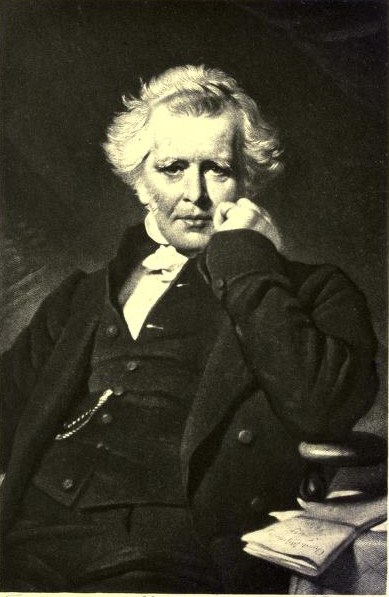
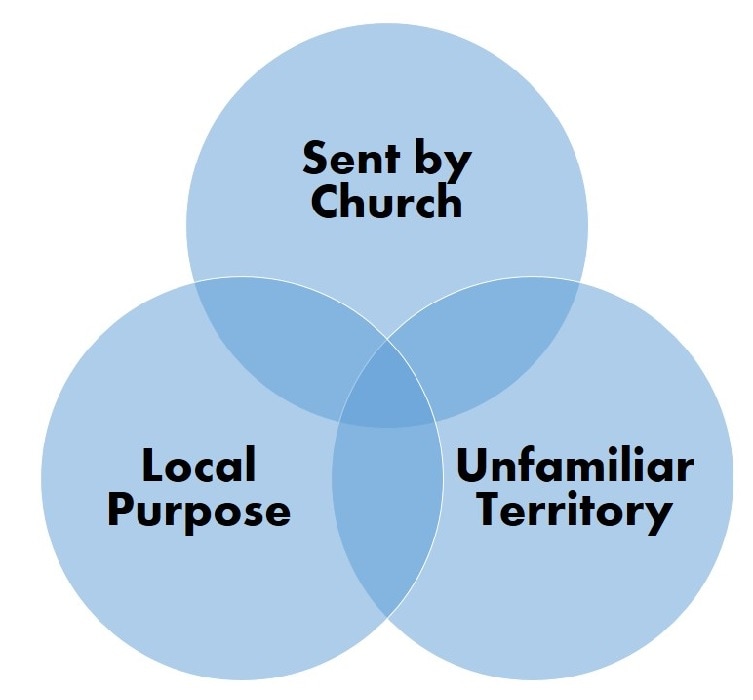
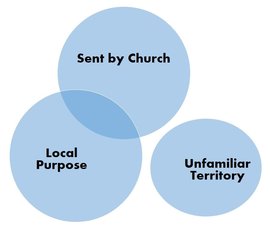
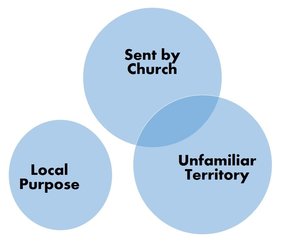
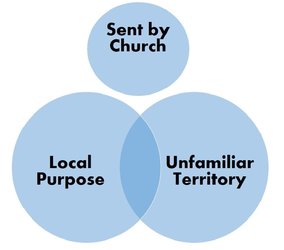



 RSS Feed
RSS Feed